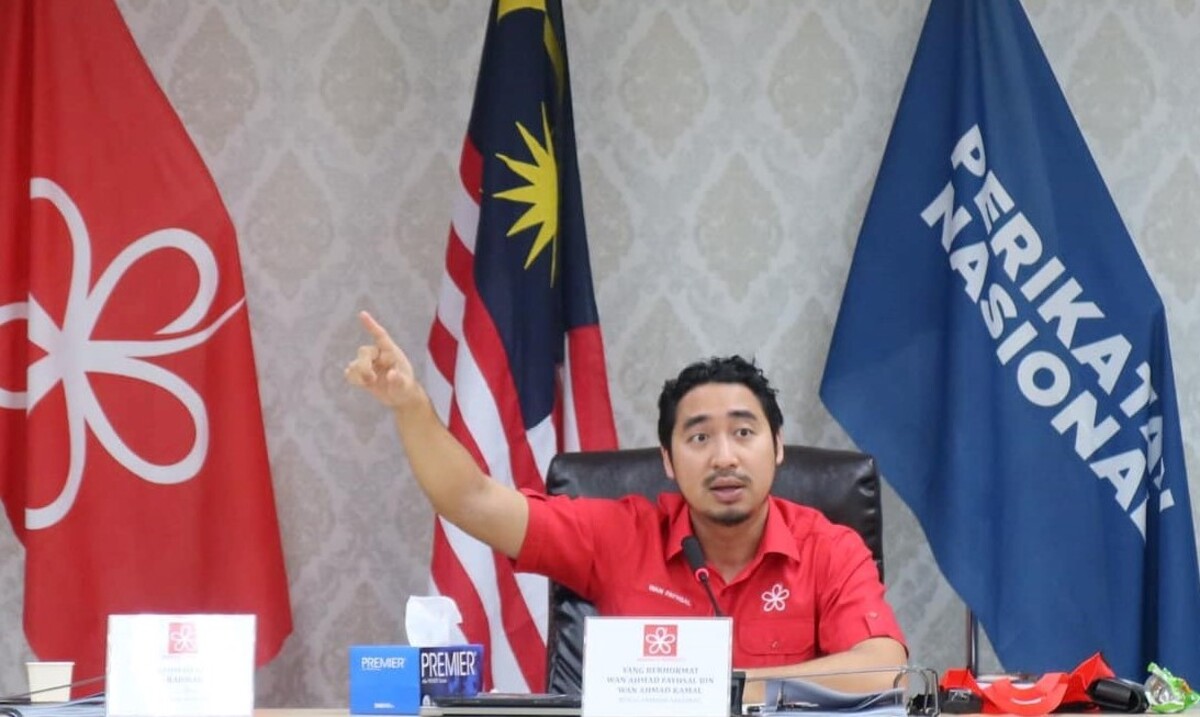KUALA LUMPUR, Feb 10 – Parliament needs to discuss the crisis in the public health care system and hear feedback from Malaysians, as well as users and providers of public health care, said Bersatu Youth chief Wan Ahmad Fayhsal Wan Ahmad Kamal.
Wan Fayhsal, who is also Machang MP, said that he recently returned from the United Kingdom (UK), where he observed that a similar crisis in the National Health Service (NHS) is openly debated between the British government, the NHS, and experts from various institutions.
“The government should admit there is a crisis within our public health system,” Wan Fayhsal told CodeBlue yesterday.
“We need reciprocal replies or feedback from the people, the user, and also the provider. So, it is best for such issues to be discussed thoroughly in public, and in Parliament. Maybe there’s a health select committee that could be utilised for that,” added the Opposition lawmaker from the Perikatan Nasional coalition.
Unlike in Malaysia where civil servants, including health care workers, are prohibited from speaking publicly, the UK’s NHS crisis saw nurses, doctors, paramedics, care providers, patients, and experts debating the health and social care minister and Labour’s shadow health secretary live on TV last month over the current state of the NHS.
Malaysia’s 15th Parliament has yet to appoint special select committees. The first meeting of the second session of the 15th Parliament is due to start next Monday.
Health Minister Dr Zaliha Mustafa has not yet stated if she agrees with sentiments from 95 per cent of government health care workers polled by CodeBlue last month who say that the public health care system is currently in crisis.
Doctors across seniority, pharmacists, dentists, nurses, and medical assistants, among other allied health care workers – across both permanent and contract staff – widely complained through CodeBlue’s survey about severe staff shortages, as well as being overworked and underpaid.
“Of course, ideally, we should give pay hikes and bonuses but as we all know, the government’s budget, at the moment, is being stretched too thin and this is the reason why most of the junior doctors are not being absorbed into permanent positions because basically, it is a fiscal issue involving the government’s coffer,” Wan Fayhsal said.
“If we could find ways to help the workers, definitely, we should be doing it. But I doubt we can, at the moment, unless there’s a radical reform within our financial situation and also our health care system.”
“Maybe there is a need to privatise certain segments of the health care so that the burden to the government is lesser. And of course, regulating working hours is an option because mental health matters for our doctors, nurses – without having their optimum condition during working hours – they could produce disastrous results in treating the sick and the ill.
“So, yes, there should be proper regulation but as we all know, we are short of staff and resources. Hence, why everyone is being stretched to the limit.”
The UK’s NHS is undergoing a similar crisis since late last year with a wave of worker strikes, as a surge of winter flu and Covid-19 cases put extreme pressure on emergency and elective care across the UK, while backlogs in the social care system and staff shortages have also reportedly contributed to overcrowding in hospitals.
The NHS saw the largest strike in its 75-year history this week that began Monday, as tens of thousands of British nurses and ambulance staff walked out from work.
ABC News reported that health care workers in the UK are demanding a pay rise that reflects the worst inflation in the country in four decades, but the British government reportedly said that it cannot afford this.
In CodeBlue’s survey of 1,652 health care workers in the public sector, more than half expressed willingness to go on strike. Pro-strike sentiments were particularly high among contract doctors, as 63 per cent of contract health care workers in the poll said they would go on strike.
However, Malaysia does not have a union for government doctors, though Hartal Doktor Kontrak (HDK), an informal group representing contract doctors, held a one-day strike in 2021. The Malayan Nurses Union has not issued any statement on demands.
While the UK has publicly available data on NHS backlogs and emergency department waiting times, Malaysia’s Ministry of Health (MOH) has not released any such data.
In recent cases with complaints of specific waiting times, neither MOH nor the health minister, in their public responses, specified how long these patients waited.
The situation in Malaysia’s health care system may be worse than the UK, as the NHS measures 12+ hour waits in the emergency department for admission. CodeBlue reported last December that critically ill patients are stranded in the emergency department of Raja Permaisuri Bainun Hospital (HRPB), a public tertiary hospital in Ipoh, Perak, for up to six days for ward admission, due to the lack of critical care beds and staff.








